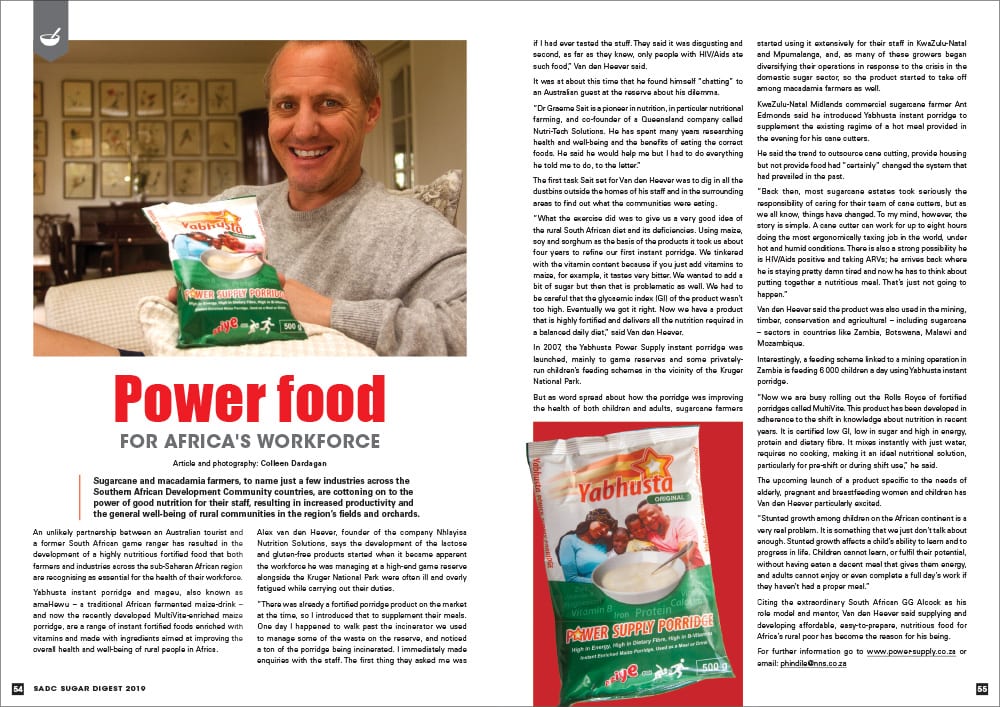A balanced diet that contains all the necessary micro- and macronutrients is essential for a healthy body and mind and to adequately perform daily functions, such as at work or in school. Not only does a healthy diet help us to perform these tasks, but, according to the World Health Organization, it also helps to protect against malnutrition in all its forms, as well as non-communicable diseases, including diabetes, heart disease, stroke, and cancer.
Some people, however, do not have access to the foods that contain these micro- and macronutrients and must often supplement their diet in the form of food supplements. Food supplements are concentrated sources of nutrients, either synthetic or extracted from food, that can come in pill, capsule, tablet, or liquid form, but they can also be found in fortified foods that have been enriched with the necessary micro- and macronutrients.
Healthy people who follow a balanced diet (starchy and wholegrain foods, fruit and vegetables, low-fat dairy foods, lean meat and fish, etc.)don’t normally need to take any food supplements, but it is recommended in certain cases. For example, pregnant women, and women of childbearing age generally, often take a folic acid (vitamin B9) supplement in order to prevent birth defects. Poor health and an unbalanced diet are, however, more common in poorer communities, where access to the required foods is more difficult.

Two areas where this is the case are in the mining community and in no-fee schools. The mining community contributes immensely to the economy of the country and the youths in schools contribute to the future of our country, therefore their optimal health is of great importance.
The mining community makes use of many unskilled workers from poor communities who work very long and hard hours that drain them physically and mentally. In order to prevent mental and physical fatigue, they need a healthy intake of nutrients such as iron and B-vitamins. Considering that they work long hours underground, without exposure to sunlight, they will also most likely need a vitamin D supplement, which aids in the absorption of other essential nutrients, such as calcium, magnesium, and phosphate; among other benefits.
Young children also require a healthy diet in order to maintain their concentration levels so that they can do well in school. Many children, especially in no-fee schools in rural areas, cannot afford a healthy lunch every day, and some even go home where there will be no dinner waiting. While an empty stomach on its own decreases concentration levels and performance, a shortage of magnesium, vitamin C, B-vitamins, vitamin D3, omega-3 fatty acids, etc. only exacerbates the situation.
An unbalanced diet due to especially poverty is also a problem in many other crucial sectors, like the agricultural sector, which is ironicallylargely responsible for the nutrition of other sectors. If workers in the agricultural sector are malnourished and cannot perform optimally, it will have an impact on the whole country’s economy. Malnourished school learners, on the other hand, won’t be able to make the best use of their education, which might cause them to end up in minimum wage jobs where, ultimately, they can’t afford to provide their children with a nutritious diet, which will just continue the poverty cycle
While food supplements are an excellent alternative to fill your diet with any nutrients you need, they are often far too expensive for the people who need them the most. Some enriched foods are a much more affordable alternative to supplement your diet, especially because they contain a healthy mix of most of the essential nutrients. Still, there are people too poor to afford even that.
This is why there are several incentives to provide people, especially workers and children, with the diet they need to not only benefit themselves, but the rest of South Africa as well. One of these incentives are mining and school feeding schemes that provide these sectors with the necessary food, or fortified food options, to curb the problem of malnutrition.
Nhlayisa Power Supply is involved in many of these feeding schemes and other initiatives, not only in South Africa, but in other African countries as well. These products are enriched with all the nutrients necessary for school children and workers to stay focused, energised, healthy, and motivated, and therefore make a huge difference not only in the mental and physical health of poor communities, but to the financial health of the country at large. See our products here.







Leave A Comment